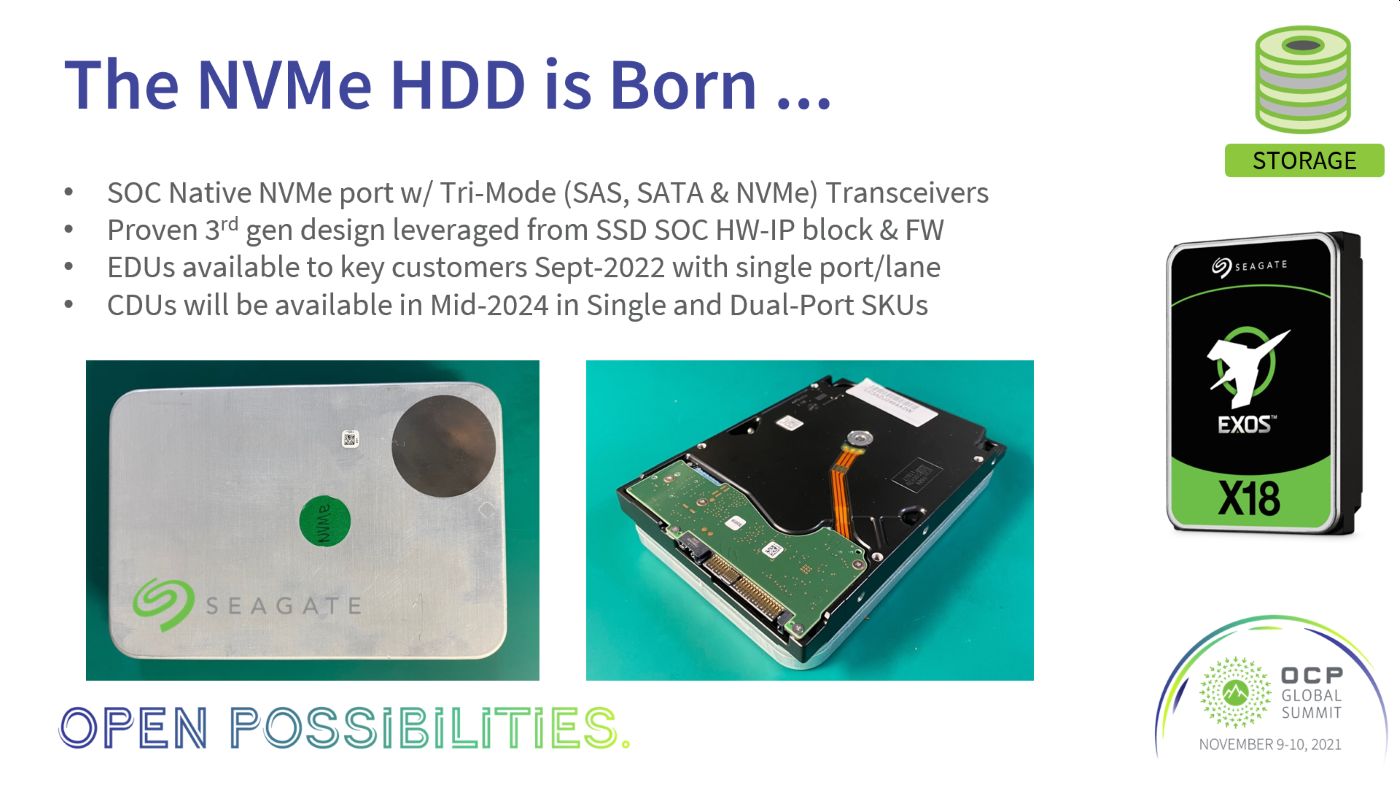According to the company’s blog post, the NVMe HDD was used in a demonstration to show off a proof-of-concept 2U JBOD and paired with an experimental SSD capable of using all three major protocols: SAS, SATA and NVMe. All over a “native NVMe port” and without the use of bridges too. For context, current HDDs are barely able to achieve saturation on a single PCIe 2.0 link, to the point that the 6Gbps from SATA or 12Gbps via SAS may not even be enough in time. To that end and because NVMe 2.0 already carries support for mechanical hard drives, it was only a matter of time before storage and memory makers like Seagate or WD began looking into the idea of merging today’s interface standards with the old medium. Oddly enough, Seagate doesn’t specify what sort of speeds these HDDs achieved, but since it’s NVMe, we could easily be looking at average sequential transfer speeds above 1GB/s. Before we can get excited, it should be noted that such an adoption isn’t going to happen overnight and Seagate is projecting that first samples of its NVMe HDDs may only be available sometime mid-2024. Even then, it’s also likely that the storage mediums will be trialed in datacentres, with no word as to when Seagate will even make the NVMe HDDs available on a consumer level. (Source: Tom’s Hardware, Seagate)
